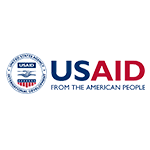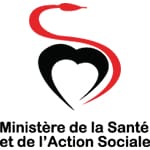Service Delivery Innovation to Support Adolescents’ Reproductive Health Needs in Senegal
HIGHLIGHTS
- Marriage and sexual activity in Senegal begin at a young age, yet uptake of sexual and reproductive health services amongst young people remains low.
- Under USAID’s Integrated Service Delivery for Health Behaviors Project (“Neema”) in Senegal, ideas42 worked with IntraHealth International and the Senegalese Ministry of Health and Social Action to develop solutions to facilitate adolescent family planning uptake.
- A feasibility pilot showed that the interventions, which included “wellness check-ups” for adolescents, were easily implemented and seemed to support girls in accessing family planning counseling.
The Challenge
Marriage and sexual activity in Senegal begin at a young age, yet uptake of sexual and reproductive health services among young people remains low—the modern contraceptive prevalence rate (mCPR) is only 3% for 15-19-year-olds and 14% for 20-24-year-olds. More than 80% of young non-users of contraception have never spoken about family planning with a health worker. This situation leads to unintended pregnancies, which can derail a young girl’s plans for the future.
Our Approach
Working under USAID’s Integrated Service Delivery for Health Behaviors Project (“Neema”) in Senegal, ideas42 partnered with IntraHealth International and the Senegalese Ministry of Health and Social Action to identify behavioral barriers to adolescent family planning uptake. With these partners, we designed and piloted an intervention intended to increase family planning take up amongst unmarried adolescent girls.
We interviewed women and young people in the regions of Tambacounda and Kedougou, Senegal in order to understand behavioral barriers to accessing adolescent sexual and reproductive health services. We found that adolescents opt not to access family planning services for multiple reasons, including overconfidence in their ability to abstain, overestimation of social and health costs, and negative associations with contraceptive users. We designed a suite of interventions to encourage uptake of FP counseling among young people. Our solution set included information services with youth associations, wellness check-ups, and behaviorally informed SMS reminders.
Learn more about these solutions here.
Results
A small feasibility pilot of the intervention package found promising results. Health workers were able to effectively implement information services and wellness check-ups, though further work is needed to improve empathetic counseling. Among youth who completed information sessions, 40% went on to complete a wellness check-up, and approximately half of these young people completed a family planning counseling session. Health workers remarked that the intervention should be scaled across Senegal.
Takeaway
Though a checkup-based intervention may seem obvious to readers from high-income countries, its simplicity belies its promise. Youth in Senegal do not currently visit health facilities except when acutely ill or accompanying an ill relative. The fear of being identified as a contraceptive user deters many from seeking out sources of accurate information about their options for preventing pregnancy and the only access point for non-barrier modern methods. By facilitating a private, low-stigma conversation between youth and health workers, the intervention simultaneously creates the opportunity for health workers to correct misconceptions about contraception and for youth to adopt a method. A general checkup has never—to our knowledge—been tried as a way to normalize care-seeking behavior and increase contraceptive use among youth.
Interested in our work applying behavioral science to global health? Email gh@ideas42.org or tweet at @ideas42 to join the conversation.
Partners












